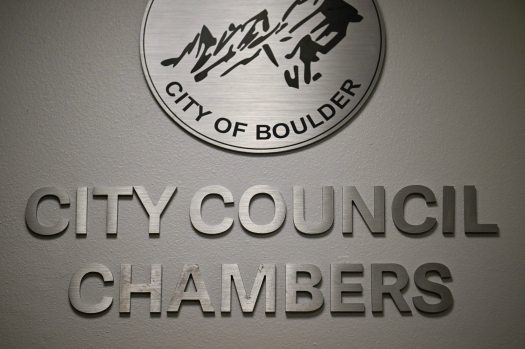Top Stories
Boulder City Bans Gray Water Use for Two Years Amid Law Changes

URGENT UPDATE: The Boulder City Council has officially imposed a two-year ban on the use of gray water, a move that could significantly impact water conservation efforts in the city. This ordinance, passed last week, aligns Boulder with a 2024 state law that will allow gray water systems in new constructions, effective next year.
Gray water, which is recycled water from sources like sinks and washing machines, is often used for irrigation. With this new ban, residents hoping to implement such systems will have to wait until at least 2026. City staffers have acknowledged the potential benefits of gray water in conserving fresh water but emphasized that the temporary ban is necessary to ensure compliance with state regulations.
The decision to delay gray water use is intended to allow the city to develop comprehensive regulations and a permitting process, which includes designing systems, conducting inspections, and implementing backflow prevention surveys. City officials estimate that creating a robust gray water system could take two full-time positions and a minimum of two years to establish.
A notable example of gray water use is the laundry-to-landscape system, which diverts water from washing machines directly to irrigation systems for gardens. While such systems can reduce dependence on fresh water, a project conducted by CU Boulder from 2013 to 2023 revealed that the water savings were less than expected.
The ban has drawn criticism from some city officials, including Planning Board Chair Mark McIntyre, who expressed concerns in a memo. McIntyre argued that the ordinance is overly broad and could hinder sustainability efforts. He urged the city to refine the regulations and engage a broader range of stakeholders before finalizing the ban.
The council’s decision has immediate implications for residents, particularly those seeking sustainable irrigation solutions. As the city prepares to navigate the complexities of gray water regulations, officials are under pressure to balance compliance with the law and the community’s water conservation goals.
Residents and local environmentalists are now left wondering what alternatives will be available during the two-year ban and how the city will address the concerns raised by community leaders. As Boulder gears up for these changes, all eyes will be on the upcoming discussions and potential revisions to the current ordinance.
Stay tuned for more updates as this story develops.
-

 Top Stories4 weeks ago
Top Stories4 weeks agoNew ‘Star Trek: Voyager’ Game Demo Released, Players Test Limits
-

 World4 weeks ago
World4 weeks agoGlobal Air Forces Ranked by Annual Defense Budgets in 2025
-

 World4 weeks ago
World4 weeks agoMass Production of F-35 Fighter Jet Drives Down Costs
-

 Science4 weeks ago
Science4 weeks agoTime Crystals Revolutionize Quantum Computing Potential
-

 World4 weeks ago
World4 weeks agoElectrification Challenges Demand Advanced Multiphysics Modeling
-

 Business4 weeks ago
Business4 weeks agoGold Investment Surge: Top Mutual Funds and ETF Alternatives
-

 Top Stories4 weeks ago
Top Stories4 weeks agoDirecTV to Launch AI-Driven Ads with User Likenesses in 2026
-

 Lifestyle4 weeks ago
Lifestyle4 weeks agoDiscover Reese Witherspoon’s Chic Dining Room Style for Under $25
-

 Entertainment4 weeks ago
Entertainment4 weeks agoFreeport Art Gallery Transforms Waste into Creative Masterpieces
-

 Health4 weeks ago
Health4 weeks agoGavin Newsom Critiques Trump’s Health and National Guard Plans
-

 Business4 weeks ago
Business4 weeks agoUS Government Denies Coal Lease Bid, Impacting Industry Revival Efforts
-

 Lifestyle4 weeks ago
Lifestyle4 weeks agoLia Thomas Honored with ‘Voice of Inspiration’ Award at Dodgers Event









